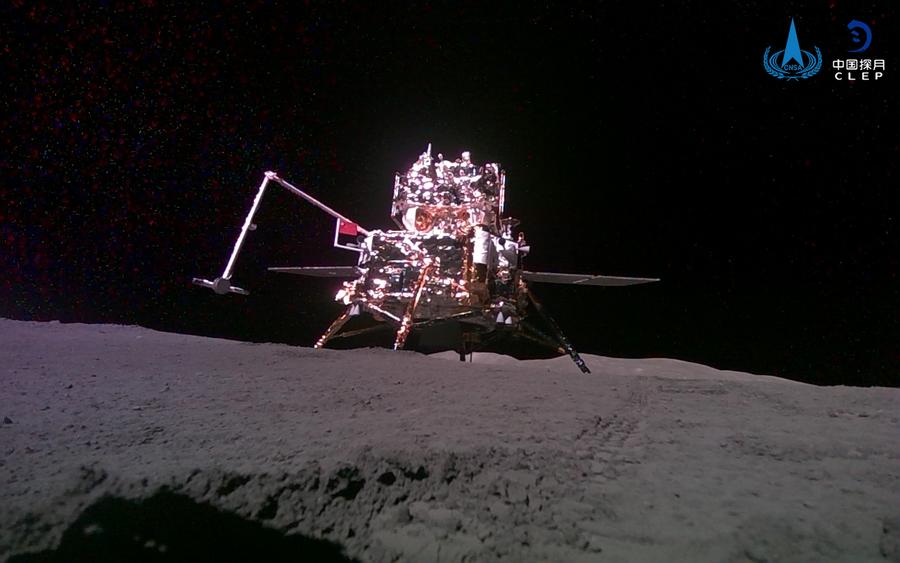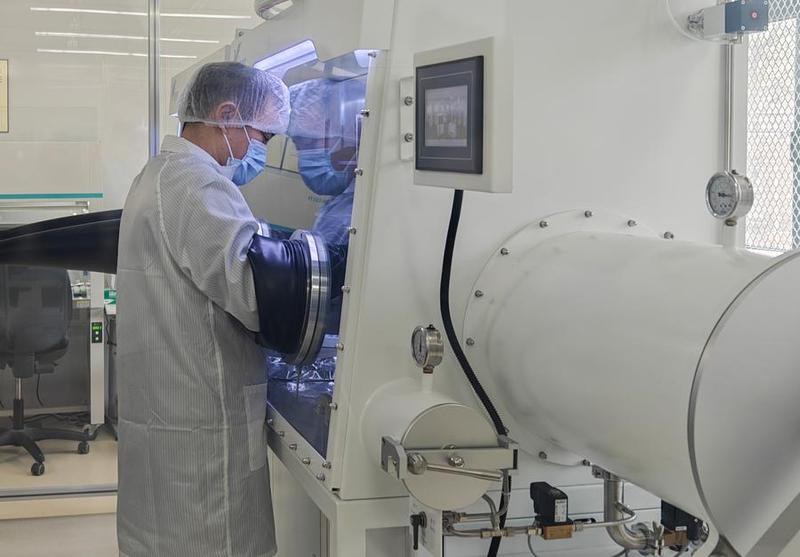
SHANGHAI - The China National Space Administration (CNSA) revealed Thursday that the Chang'e 8 lunar probe is scheduled for launch around 2029, and will carry payloads from 11 countries and regions and one international organization as part of international cooperation.
The announcement was made at the opening ceremony for the 2025 Space Day of China, which is celebrated annually on April 24.
The Chang'e 8 mission will target the Leibnitz-Beta Plateau near the lunar south pole region, working with the earlier Chang'e 7 mission to conduct scientific exploration and in-situ resource utilization experiments. These efforts will lay the groundwork for the future International Lunar Research Station.
ALSO READ: Shenzhou XX crew prepares for launch to Tiangong
According to CNSA, the 10 selected collaborative projects include a multi-functional robot designed by researchers in the Hong Kong Special Administrative Region, a lunar rover developed by Pakistan and the International Society for Terrain-Vehicle Systems (ISTVS), an exploration rover made by Türkiye, and radio astronomical instruments by South Africa and Peru.
The projects also include Italy's laser retroreflector arrays, Russia's plasma and dust analyzer and high-energy particle detector, Thailand's neutron analyzer, Bahrain and Egypt's lunar surface imaging system, and Iran's lunar potential monitor.

Shan Zhongde, head of CNSA, said China will work closely with international partners to achieve new scientific discoveries and technological breakthroughs that will ultimately benefit all of humanity.
CNSA announced in October 2023 international cooperation opportunities for the Chang'e 8 lunar mission, which offered 200 kilograms of payload resources for global partners. A total of 41 cooperation proposals were received.
ALSO READ: China invites global partners on Tianwen 3 Mars sample-return mission
The CNSA on Thursday also said that scientists from institutions in France, Germany, Japan, Pakistan, the United Kingdom and the United States have been granted the opportunity to borrow lunar samples collected by the Chang'e 5 mission for scientific research.
At the ceremony, the agency announced that seven institutions from six countries have been authorized to borrow the lunar samples.
The authorized institutions include the Institut de Physique du Globe de Paris (IPGP) in France, the University of Cologne in Germany, Osaka University in Japan, the Pakistan Space and Upper Atmosphere Research Commission (SUPARCO), the Open University in UK, Brown University in US, and the State University of New York at Stony Brook in US.
READ MORE: China completes 20 astronaut extravehicular activities, says CMSA
In 2020, China's Chang'e 5 mission retrieved samples from the moon weighing about 1,731 grams.
Shan said China's lunar exploration program has always adhered to the principles of equality, mutual benefits, peaceful utilization and win-win cooperation, sharing achievements with the international community.
He added that CNSA will continue to accept international applications for lunar sample research, expressing hope that global scientists will make new discoveries that expand human knowledge and benefit humanity.
In November 2023, CNSA opened applications for international researchers to borrow Chang'e 5 lunar samples. By the end of December 2023, it had received 24 applications from 11 countries and international organizations.


